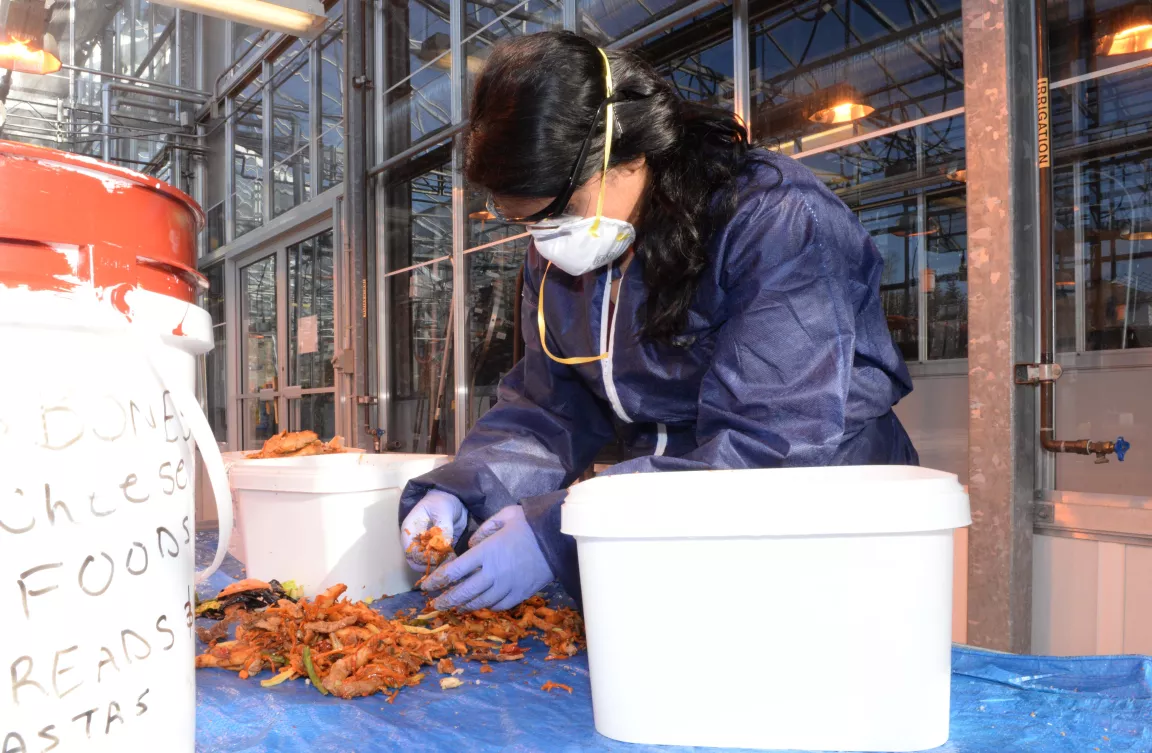Food for Thought

Sustainability is at the heart of Jessy Rajan’s mission in life.
A 2016 University of Northern British Columbia Master of Natural Resources and Environmental Studies graduate, Rajan channeled that passion into a recently published paper examining food waste at the Prince George campus.
The paper, Measuring food waste and creating diversion opportunities at Canada’s Green University, is published in the Journal of Hunger and Environmental Nutrition and looks at the composition of food waste at two campus food outlets, and looks at ways some of that waste can be diverted.
Rajan completed the research while she was pursuing her master’s degree, but this project was done independent of her thesis. She says it is gratifying to have her work published in a journal she respects.
“It is a great opportunity to share research with others,” she says.
During her time at UNBC Rajan worked in the Green Centre, co-ordinated Bike-to-Work Week and served a term as president of the Northern British Columbia Graduate Students’ Society.
It was natural that when a group of UNBC students and faculty members were interested in doing a food waste audit on campus, Rajan was selected to lead the project.
Funded with a grant from the UNBC Green Fund, the researchers set out to look at how much food from the cafeteria and The Thirsty Moose pub went uneaten, and of that, how much could be diverted away from the landfill.
“The reason we chose to carry out a food waste characterization was, in part, due to the lack of research in that area,” she says. “It was a part of waste audit research that we hadn't come across and we thought it was an opportunity to fill that gap.”
Rajan and the team of researchers including co-authors Ecosystems Science and Management Professors Dr. Art Fredeen and Dr. Annie Booth along with Forest Ecology and Management student Michael Watson and other student volunteers conducted two-week long audits.
“It was wonderful to have the opportunity to work with highly engaged and motivated professors on a project of mutual interest,” Rajan said.
The researchers collected uneaten food from the kitchens, compost bins and plate scrapings then sorted them by type: grain-based, cooked vegetables, raw fruit and vegetables, and protein.
“One of the objectives was to compile data that would help assess the need and potential use of an industrial compost system,” Rajan says. “Food content was relevant to the study to determine the type of compost that could potentially be suitable.”
As a small, research-intensive University, UNBC offers graduate students like Rajan the opportunity to work closely with faculty members and have their research published. This study marks the second time Rajan has been the lead author on a paper, in collaboration with a UNBC faculty member.
Although her immediate plans do not involve a career in academia, working on research projects and publishing the results have helped her as she enters the workforce.
“Working on this project, I have been able to reinforce my scope of knowledge and skill set as I begin to step into my career,” she says.